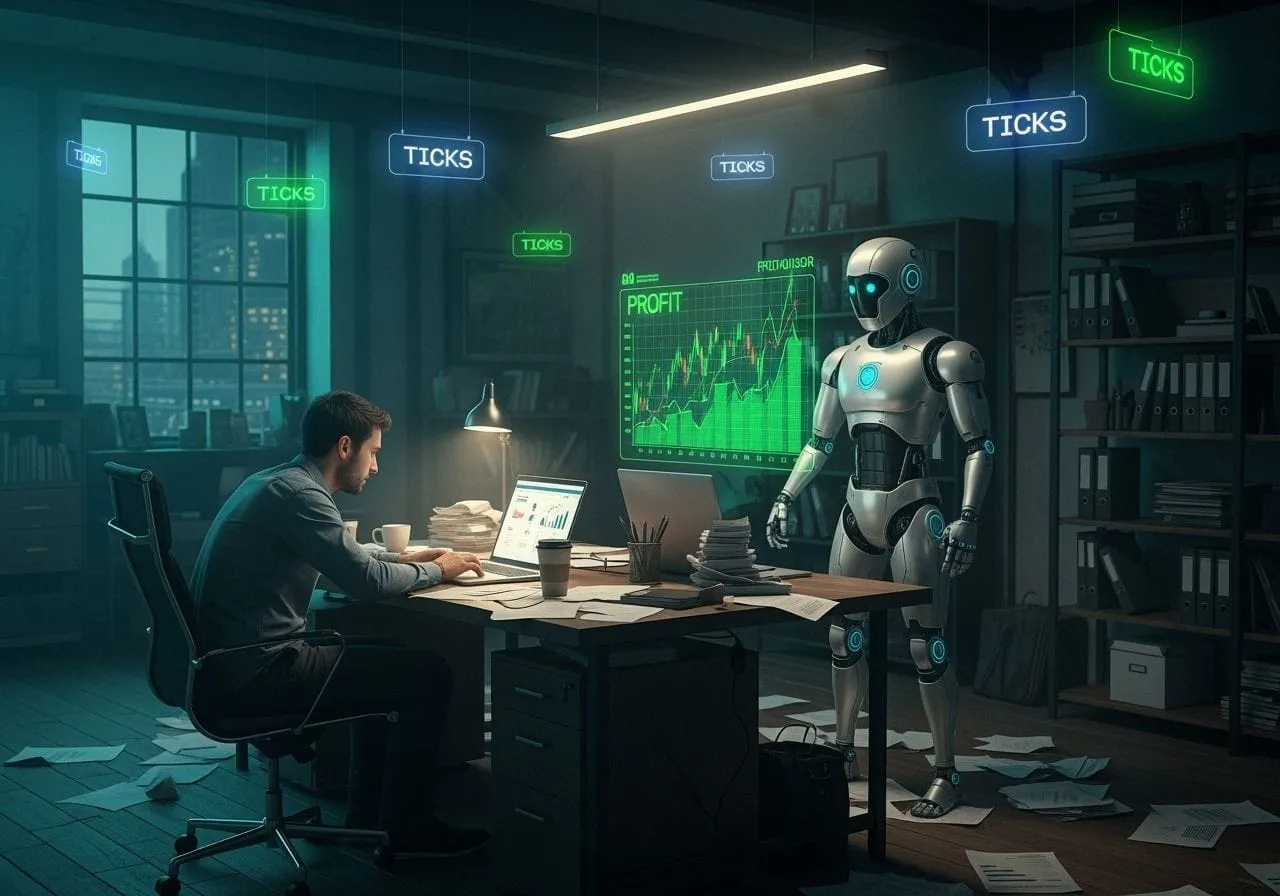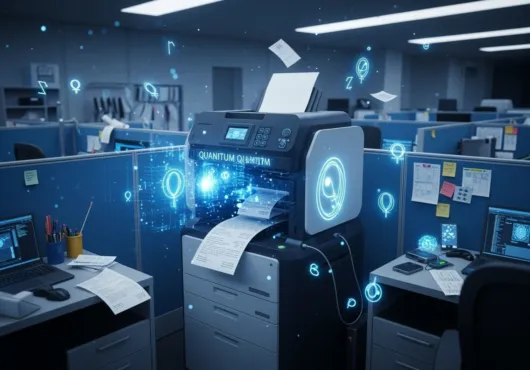AI can rebalance my portfolio in the time it takes to microwave popcorn. Cool trick.
But when a recession rumor blows up my news feed at 2 a.m., the app just gives me a green progress bar and a pep-talk emoji. Zero comfort. Zero context. And definitely zero understanding of why I’m suddenly wide-awake, stress-googling “401(k) penalty for early withdrawal.”
Like What You Read? Dive Deeper Into AI’s Real Impact.
Keep ReadingThe Algorithm’s Sales Pitch
Cheap fees, perfect allocation, automatic tax harvesting. It’s like a financial infomercial that never sleeps.
For straight-up math—asset splits, loss harvesting, dollar-cost averaging—the bots are lethal. They run the numbers, never blink, and don’t bill you $300 an hour.
Where the Wheels Come Off
Life happens. Divorce, layoffs, a surprise baby—stuff that isn’t in any spreadsheet.
Panic happens. Markets dive, headlines shout “Great Recession 2.0,” and suddenly the “set-and-forget” crowd is very much not forgetting.
Dreams happen. Retiring early to restore vintage campers or moving Mom closer after her diagnosis. The algorithm can’t feel the weight—or the joy—of any of that.
A human advisor can look you in the eye, clock the tremor in your voice, and adjust the plan and the conversation. Robo-advisors adjust a slider.
The Smarter Play: Team-Up
Imagine your advisor armed with an AI sidekick:
AI crunches a million scenarios before you finish your latte.
Human filters those scenarios through the messy reality of you.
The robot handles the grunt work; the human handles the humanity. Together they’re lethal—in the good way.
Bottom Line
Robots are phenomenal at counting beans. Humans are phenomenal at knowing which beans actually matter to you. Until a chatbot can mourn a market crash with you—or high-five your kid’s college acceptance letter—human intuition stays king.
So yeah, let the robo handle the spreadsheets. But when life flips the board, you’ll want an actual carbon-based co-pilot in the seat next to you.



